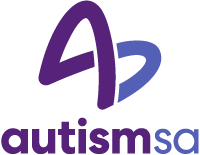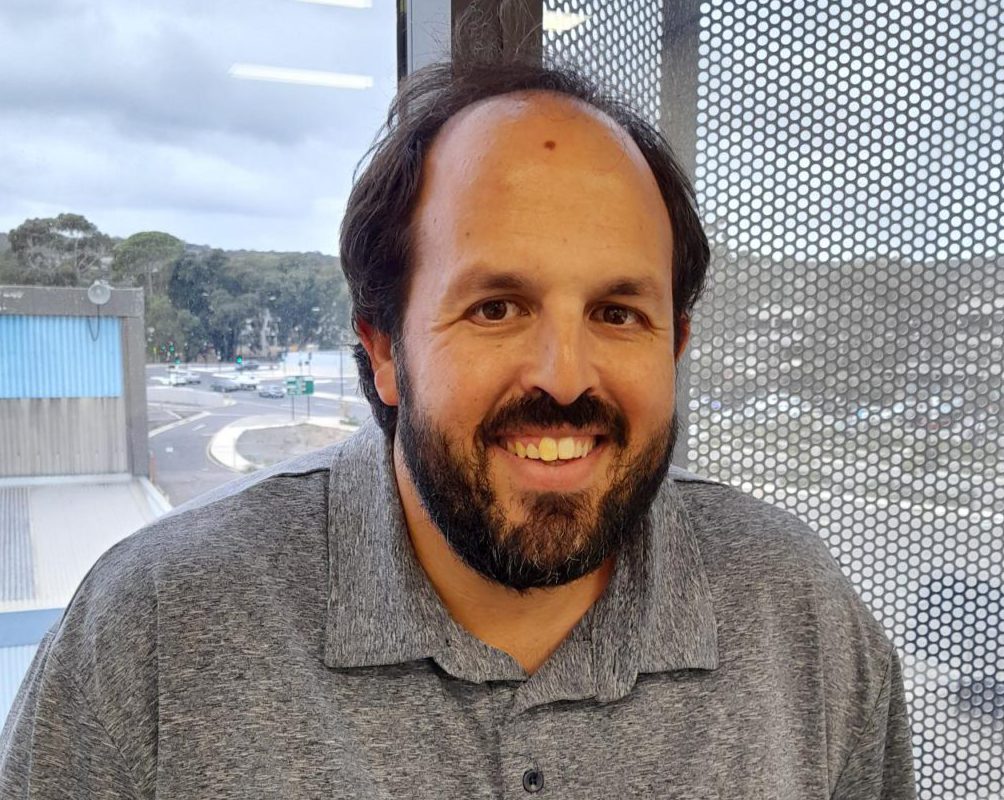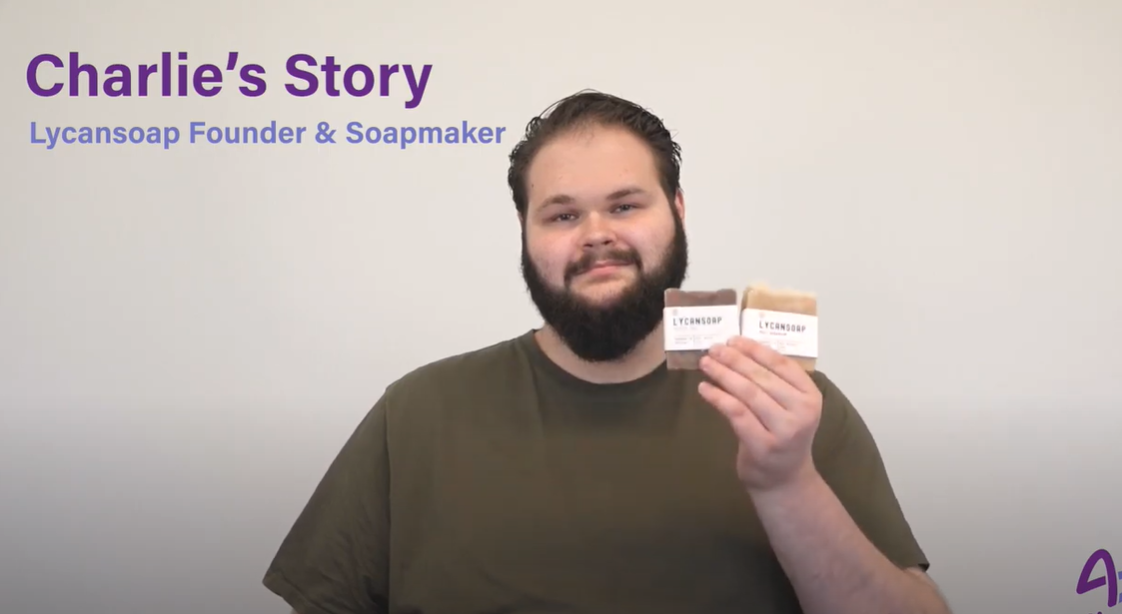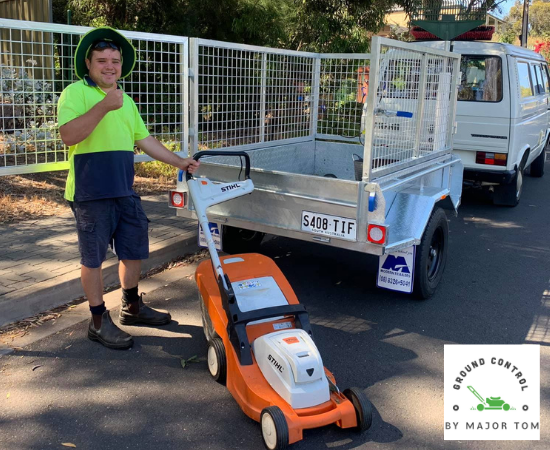Strengthening Pathways to Inclusive Employment (SPIE)
Supporting Autistic People to Thrive in the Workplace
Download the poster series for employers to support autistic people to thrive in any workplace below.
Download the poster series
Project Title:
Strengthening Pathways to Inclusive Employment: Building inclusive recruitment practices of organisations to enhance autistic employment pathways. (SPIE)
Project Duration:
1st July 2024 to 30th June 2025
Geographic Scope:
Metropolitan Adelaide region, extending to large rural towns and regional centres.
Funding:
Department for Human Services (DHS)
Background:
The ABS reports a workforce participation of autistics at a mere 38%, significantly below both the GP 84.1% rate and the disability rate of 53.4%. Autistic adults report employers are “generally rubbish’’ at recruiting and including autistic employees.
The project aimed to significantly benefit the adult Autistic community within SA, which comprises 35% of the 23,647 clients registered with ASA as of June 2023. This initiative specifically targets autistic adults (over 18) primarily located in metropolitan Adelaide and extends to those in larger rural towns and regional centres. A considerable segment of this group does not qualify for NDIS funding and is often ineligible for other support services, such as Disability Employment Services, placing them at a significant disadvantage in the job market.
Autistic individuals often face unique challenges when seeking employment due to the hidden nature of their disability. Traditional recruitment practices tend to evaluate candidates based on social and communication skills, rather than on the actual competencies required for the job. This can prevent highly qualified autistic applicants from securing employment, despite their abilities to excel in the role for which they are applying. The reliance on conventional assessment criteria that do not align with the strengths of autistic individuals frequently results in higher rates of unemployment or underemployment within this community. This not only impacts their mental health and career prospects but also imposes broader societal and economic consequences.
Our project, Strengthening Pathways to Inclusive Employment: Building inclusive recruitment practices of organisations to enhance autistic employment pathways. (SPIE) was designed to address these challenges by advocating for a shift in recruitment practices and workplace environments. By promoting a more inclusive and accommodating approach, we aimed to highlight and leverage the unique strengths of autistic individuals, such as exceptional focus, attention to detail, and reliability.
The Target Audience and Beneficiaries of the project:
Organisations: Small, medium, and large enterprises (SMLEs) in South Australia will increase their talent pool for recruitment, gaining access to employees who will enhance innovation and productivity.
Autistic Community: Autistic adults (over 18), including those who do not qualify for NDIS funding and are often ineligible for other support services, such as Disability Employment Services will benefit from increased job opportunities, experience accommodating supportive work environments, and achieve greater independence and quality of life.
Target: 10 autistic people will be employed, 40 organisations will be engaged with and 1000 staff will benefit from the project activity.
How the project addressed strengthening inclusive employment pathways
The Strengthening Pathways to Inclusive Employment (SPIE) project led by a dedicated Community Engagement Officer aimed to equip South Australian organisations with the tools, confidence, and practical strategies to attract, recruit, and retain neurodivergent employees.
Over the 12 months, SPIE engaged organisations across key sectors such as childcare, education, healthcare, local government, disability services, and consulting.
The initiative combined inputs around education and awareness, inclusive recruiting and onboarding process support, practical tools and resources, education and advice on workplace adjustments.
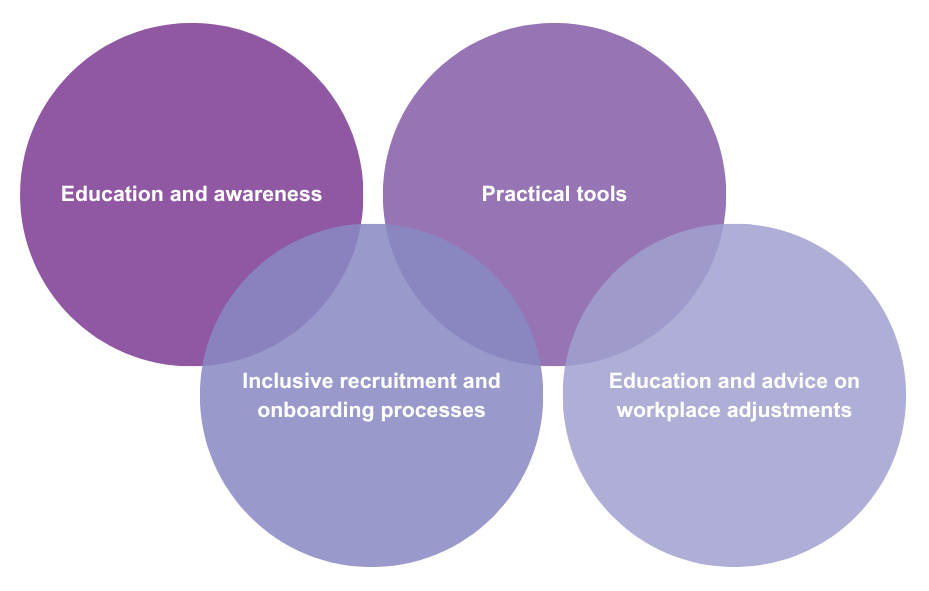
Theory of change
Project Title: Strengthening Pathways to Inclusive Employment (SPIE)
Funder: Department for Human Services (DHS)
Timeframe: July 2024-June 2025
Geographic Scope: Metropolitan Adelaide, large rural towns and regional centres
| 1. Inputs |
|
|---|---|
| 2. Activities |
|
| 3. Outputs |
|
| 4. Outcomes | Short-Term
Medium-Term
Long-Term
|
| 5. Impact |
|
Key learnings
Throughout the SPIE project, Autism SA worked closely with a diverse range of organisations across South Australia. This engagement revealed several recurring insights and challenges that shape the future of neuroinclusive employment practice:
1. Engagement Requires Flexibility, Relationships, and Persistence
Successfully engaging organisations meant navigating staff turnover, scheduling barriers, and shifting priorities. Many were interested but time-poor, with competing pressures and limited local autonomy.
“Had things lined up to start working with a company and staff left.”
“We have more availability after July.”
“Interstate management—had little control over HR decisions nationally.”
Personalised outreach, trust-building, and practical, flexible support were key to maintaining momentum and adapting to organisational needs.
2. Misunderstandings About Neurodiversity Persist
Despite growing awareness, neurodiversity was often misunderstood—particularly as something to accommodate for customers, not staff.
“Can you set up our business to be autism-friendly, not for staff but for customers?”
“We want more of an autism awareness course.”
“we would be looking at hiring autistic people, but as entry level staff only”
These comments highlight the urgent need for ongoing education that:
- De-stigmatises autism
- Emphasises the strengths and capabilities of autistic individuals
- Encourages universal design over reliance on disclosure
3. The Equality vs Equity Gap
Many leaders initially viewed accommodations as unfair to others.
“If we make adjustments for one person, everyone will want it.”
Using accessible metaphors and equity-focused discussions helped reframe inclusive practices as standard leadership tools. Participants came to understand that:
- Equity means giving people what they need to thrive
- Adjustments support not just autistic staff—but everyone
“If it were a knee injury, people would understand. But if it’s your sensory battery, people just don’t get it.”
4. Practical Strategies Are Most Valued
Employers responded best to small, cost-effective changes that could be implemented immediately. Examples that resonated included:
- Rubber Duck Strategy – to signal “focus mode” and minimise interruptions
- One-Page Profiles – for clearer communication and support
- Video-based job descriptions – to improve onboarding
- Digital efficiencies – reducing face-to-face demands for reception roles
“Simple, cost-neutral tips and actions that can be taken.”
“The visuals and one-page profile were game-changers.”
5. Leaders Need Real-World Guidance
While general awareness is growing, many leaders were unsure how to respond to workplace challenges. Issues included:
- Misunderstanding behavioural expectations
- Resistance to structured training
- Overreliance on verbal or face-to-face interactions
Support is needed for:
- Giving feedback without shame
- Understanding communication preferences
- Balancing autonomy with performance standards
6. There’s Demand for Safe, Ongoing Support
Many organisations sought a “safe space” for asking questions and troubleshooting challenges after training.
“Having someone to ask the silly questions to has been so helpful.”
“We support children with autism well—but that doesn’t seem to carry over once they turn 18.”
There is clear demand for:
- On-demand coaching or advice channels
- Customisable resources
- Sector-specific examples
- Starter packs and digital libraries
7. Evaluation is Often Deprioritised
Although engagement was strong, post-training data collection proved challenging. Many organisations—especially smaller ones—lacked the time or systems to complete follow-ups.
Future projects should:
- Embed feedback tools into delivery (e.g., live polling, QR surveys)
- Keep evaluation short and accessible
- Offer light-touch options that fit into busy schedules
Conclusion
The SPIE project has confirmed that inclusive employment is both necessary and achievable—especially when organisations are given the right tools, support, and encouragement. Through training, mentoring, and accessible resources, Autism SA helped shift workplace thinking from passive awareness to active implementation.
Key outcomes included:
- 41 organisations engaged
- Over 1,000 staff impacted
- At least 9 autistic individuals employed or promoted
- Significant improvements in employer knowledge, confidence and intent
- Development of the “Supporting Autistic People to Thrive in the Workplace” poster series
Despite data collection limitations, the project demonstrated a scalable, low-cost model that empowers employers to take ownership of inclusion.
The Path Forward
SPIE has laid a strong foundation for employment reform in South Australia. With the right investment and partnerships, this approach can reshape hiring culture—ensuring that autistic adults are not just included, but welcomed, valued, and supported to thrive.
“The staff who attended are now our internal champions. That’s where change starts.”
— Project participant
Resources
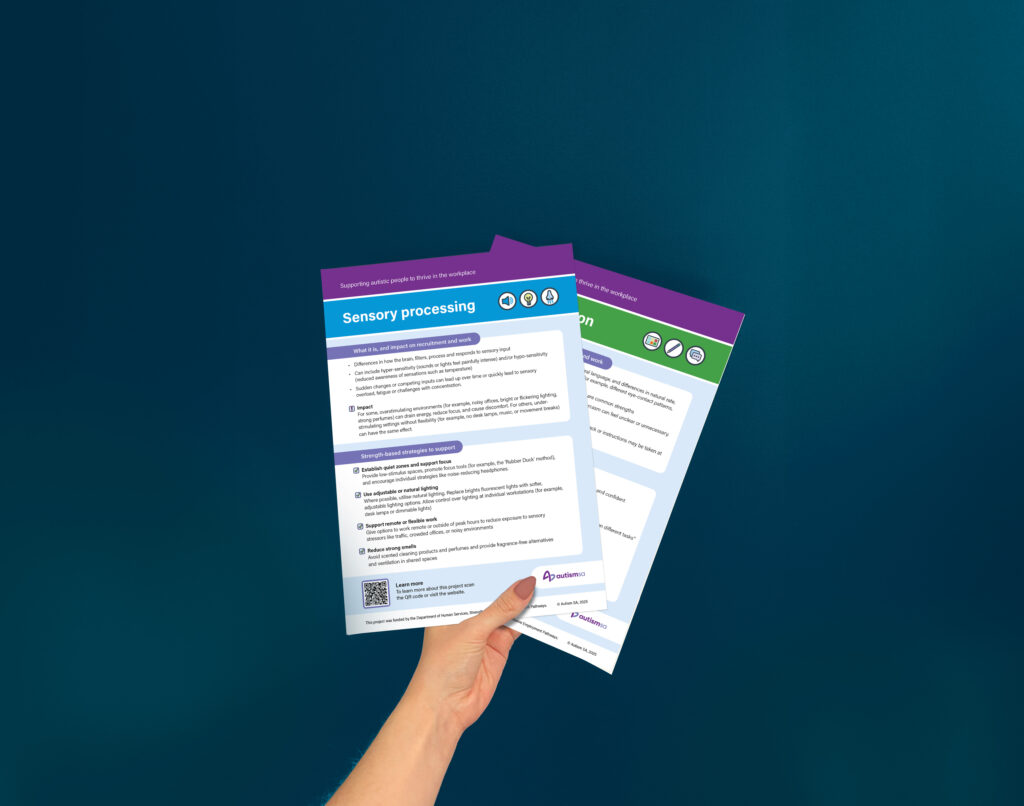
Supporting Autistic People to Thrive in the Workplace
A poster series for employers to support autistic people to thrive in any workplace

Neuro-inclusive Recruiting
Neuro-inclusive Recruiting is a free online resource designed to support employers to attract, employ and retain neurodivergent talent. It provides practical information, tools and strategies to build confidence in creating and maintaining neuro-inclusive workplaces

Tailored Training and Consultancy Support
Autism SA can work with you to make your recruitment and workplace more neuro-inclusive. Contact us today.
Stories from our community
David’s story
“My name is David and I have been enjoying a nearly 17-year career as an employee at Autism SA. Outside of work, I am married with two children and on the weekends, I enjoy umpiring Aussie Rules Football during winter and cricket during summer.”
Charlie’s story – an entrepreneur
“Charlie spoke to us about his journey creating a small business, the importance of inclusion, and encouraging other businesses to consider inclusive practice and products.”
My brother Tom
“Hannah Neale is a 25-year-old professional whose younger brother, Tom, was diagnosed with autism when they were children, we spoke to Hannah about her personal experience.”

